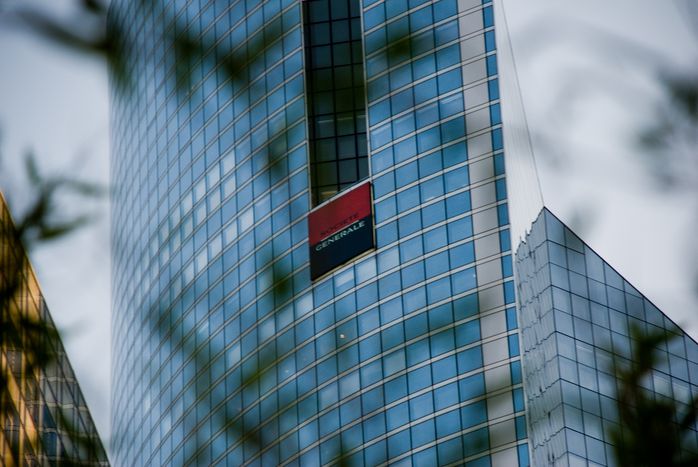
The Kerviel case brings back economic patriotism to the forefront
Published on
Impossible to avoid this clean looking young man: Jerôme Kerviel. The man who cost 5bn Euros to Société Générale has become in less than a week a national icon in France. His story may remind us of others. Nick Leeson has known the same fate ten years ago as he sank the Barings, then one of the most prestigious British banks. He became the first « rogue trader ».
What do these young speculators teach us about the state of the world’s finance?
Leeson and Kerviel, caught in the eye of the storm
In 1995, Nick Leeson was operating for the prestigious Barings bank in Singapore on the Japanese market. He has set up a massive fraud on relatively safe markets. He could have set the account back in the green if the Kobe earthquake had not caused the Japanese index to plunge, thus aggravating the losses. The Barings’ debt was of more than a billion dollar. The “Queen’s bank” has not survived from the operation.
Leeson was interviewed on the BBC on the very day of Kerviel’s tour de force. Whilst acknowledging that he was stunned with the amount of losses, he saw that the Frenchman was living “a very similar story” to his. He was just looking for “success”. Caught in the eye of the storm, “you do not even realise that the game is up”. Jerôme Kerviel seems indeed to tell the same story so far, the one of trader carried away by a highly competitive, bluffing to get recognition.
However, the British trader does not seem to take all the blame during the interview, “a lot of people have obviously not done their work properly at the back office”. In other words, his speculative frenzy should have been detected by control mechanisms. “People in charge of the controls have no idea of what is taking place in reality.”
A victim of the system
In France, some see Kerviel as the victim of a system that became crazy. Ségolène Royal has for instance recently declared “it is difficult to put all the blame on a single person.” This view does not fail to amuse British journalists who consider that the French tend to forget the importance of the scandal as they focus only on the trader’s personality.
The British are nonetheless also very lenient when it comes to their own “rogue trader”. Leeson often appears in tabloids and quality newspapers. Everybody knows the story of his second wedding and his reconversion as manager of Galway FC, a modest football club. He is part of the jet set just as Kerviel could be. Implicitly, we tend to forgive their recklessness because they cheated for a game, which rules we do not understand. They managed to be admired in spite of the terrible consequences of their gamble.
A worldwide game of poker
Now, Société Générale is under threat to be taken over just as the Barings in 1995. The French government works actively to make sure the bank will remain French.
Barings was a venerable institution maintaining close links with the monarchy. It was part of the United Kingdom’s history. Taken over by ING after Leeson’s gamble, even its logo has now disappeared.
Société Générale was also one of the oldest and most important French banks. The first desperate moves of the French authorities aim at avoiding a Barings scenario. In that case, French politicians would favour BNP, the largest French bank, for a take over bid. This would be pretty ironic, as SG refused a public take over bid emanating from … BNP.
In Brussels, some fear a new fever of economic patriotism, reminiscing of Paris reaction as an Italian group threatened to buy Suez.
Is it not, indeed, more urgent to rethink the way bank relate to profit and their internal workings, as they are engaged in a worldwide game of poker?
It is hard to take such measures in a globalised world and more importantly far less popular than a bit of economic chauvinism enough to get on the European Commission’s nerves.
Julien de Cruz



